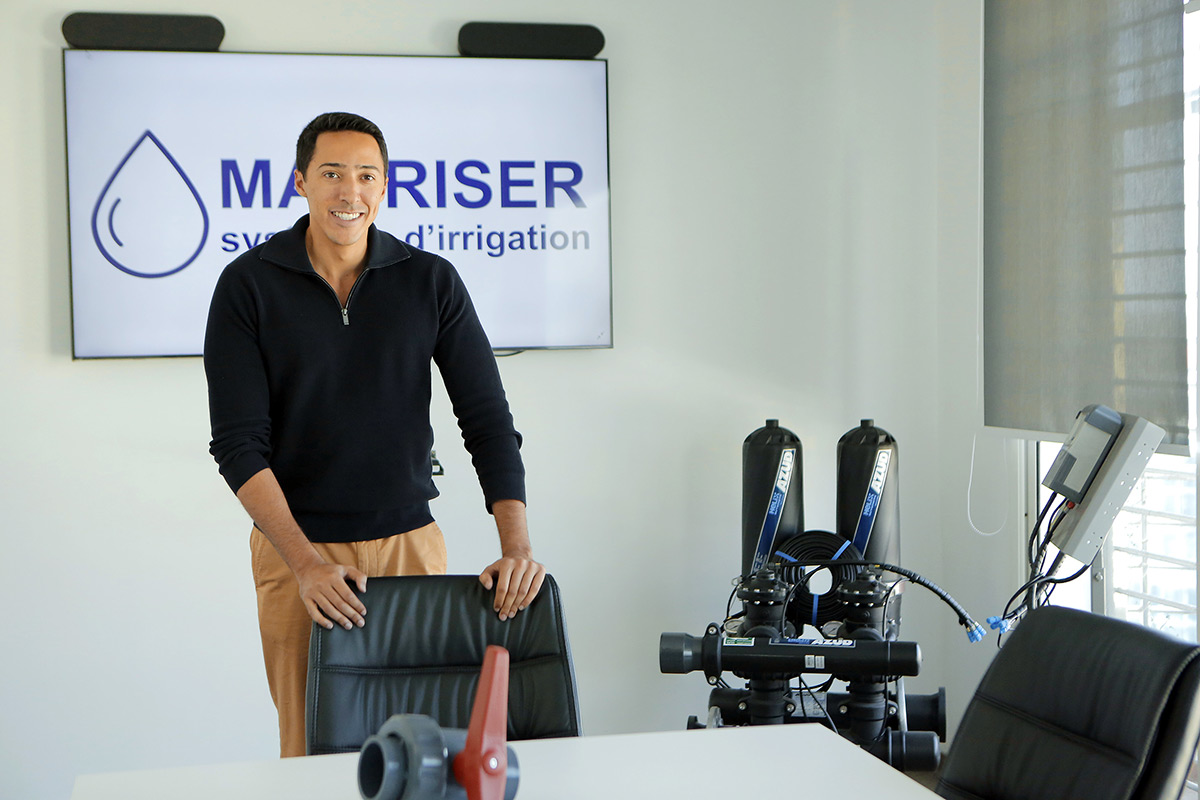
What are the major challenges of the irrigation sector in Morocco?
The water stress that our country is experiencing, and that will tend to be exacerbated during the next decade, represents a major technical challenge. Similarly, the notions of sustainability and preservation of our environment are important issues. How to make our agriculture profitable but also sustainable? To solve these issues, micro-irrigation, as we know it, will have to give way to precision irrigation. This new approach combines technology with traditional micro-irrigation techniques in order to significantly increase yields and thus respond to population growth. With precision irrigation, we can accurately define the amount of water needed, based on factors such as the soil's ability to absorb water and the plant's actual need. On the other hand, wastewater can also be used through precision irrigation.
What is the added value of your establishment in Dakhla?
Our establishment in Dakhla has a double objective. It allows us to accompany large Moroccan operations that are setting up there and, at the same time, is fully in line with our desire to become a pan-African company. With the new infrastructure, including the new port of Dakhla, we hope to use Dakhla as an entry point to sub-Saharan markets.
What is your strategy for Morocco and Africa?
Magriser was a pioneer in the introduction of micro-irrigation systems in Morocco in 1987. This pioneering spirit is still embedded in our corporate culture. We will continue to support the development of our agriculture through our technologically advanced solutions with a focus on sustainability. Our solar pumping department is an example of this. As far as Africa is concerned, the agricultural potential is considerable, with 60% of the world's unused arable land concentrated there. We hope to contribute at our humble level to the adoption of irrigation systems. The opening of our subsidiary, Magriser Africa, in Dakar, is a testimony of our commitment.
